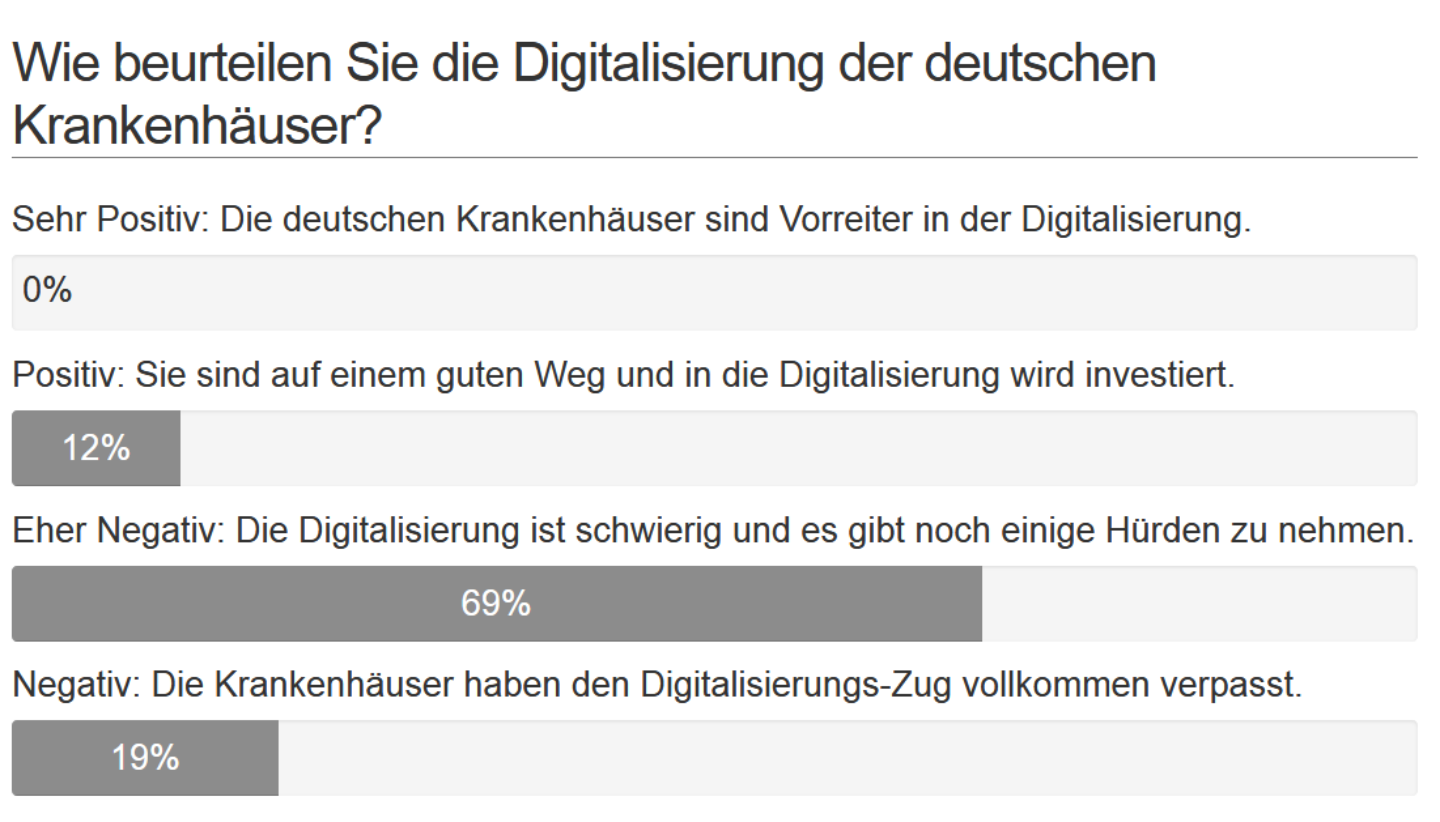15 lip 2020 | Weingarten
Additional boost to digitalization in the German healthcare sector
• CHG-MERIDIAN continues dialog with policymakers, the research community, and representatives of the IT sector and hospitals
• Topics of discussion include: the COVID-19 crisis; factors accelerating digitalization in the German healthcare sector; standalone IT solutions: More than just a technical challenge
• Policymakers supporting digitalization and addressing the protection of patient data
As part of the DIGITAL.DIALOG 2020 event at the end of June, CHG-MERIDIAN invited eight representatives from the healthcare sector, IT, politics, and the research community to a live webinar held under the banner ‘Be a pioneer – promote digitalization & protect our future’. The purpose was to share different views of the latest developments in digitalization in Germany’s hospitals.
All participants agreed that the digital transformation in Germany’s hospitals goes hand in hand with a cultural change that can only be successful if all parties involved cooperate on an equal footing. In addition to the challenges of financing, it is this cultural change that determines how quickly digitalization progresses. Cultural change and the digital transformation can only succeed if patients and healthcare professionals are convinced that they will benefit from technological progress.
And change is definitely needed. A survey among all participants during the event revealed that the digitalization of Germany’s hospitals is viewed negatively.

According to Sandy Jahn, education and digital literacy officer at the D21 Initiative, interest in a more digitalized healthcare system is growing steadily year on year, but there is a relatively large group of people, particularly among senior citizens, who are not yet part of the digital transformation, or only to a very limited extent. At the same time, senior citizens represent the largest age group among patients. Jahn considers it essential that patients are given the ability to properly manage their data in order to overcome any skepticism.
She believes that all patient groups would benefit from digital patient records in which x-rays and other important data could be easily and securely stored. Dr. Pascal Grüttner, head of IT at Hospitalvereinigung St. Marien in Cologne, has no doubt that in the future patients will only visit those hospitals and doctors’ practices that are capable of accepting and processing existing data. He also believes that the digitalization process should focus on areas where added value can be created from data voluntarily shared by citizens.
In this context, Lothar Riebsamen, member of the Bundestag for the CDU, highlights the Patient Data Protection Act, which is expected to come into force in autumn 2020 and will give patients sole power over their health data, from selective disclosure within the healthcare system to the deletion of individual data records.
According to Riebsamen, the German federal government will spend €3 billion from its economic stimulus package on new and updated equipment in hospitals in line with its program to ensure the future viability of hospitals. This will close the financing gap. In accordance with the resolution passed on June 17, 2020, the focus will be on modernizing emergency care facilities, improving digital infrastructure, IT security and cybersecurity, and on strengthening regional supply structures.
For Professor Volker Nürnberg, a partner at auditing firm BDO, the pandemic has been the biggest disruption since WWII. He views the crisis as a major opportunity to identify efficiency deficits and accelerate the digital transformation in many areas. The task at the end of the year will be to analyze which ad-hoc digital measures worked well and to translate these into standard processes.
Fabian Pritzel, CTO of Paracelsus Kliniken, believes there is huge potential in the use of structured data, from anamnesis through to diagnosis and therapy, and in the automation of routine tasks, of which up to 40 percent do not add value. He adds that this is the only way to support data-driven decision-making and to achieve the goal of curing patients better and more quickly.
Users of outdated and only superficially refined standalone solutions are understandably skeptical about digitalization. They will need to be persuaded anew of the benefits of cloud-based workflows featuring open interfaces and close links between a hospital’s internal and external processes.
Peter Krause, Head of Healthcare Sector Sales Germany at CHG-MERIDIAN, emphasizes that there is more to digitalization than just new technology. The focus must always be on people. That is why strengthening the digital skills of all employees is key to delivering the digital transformation in German hospitals, Krause adds.
To view the Digital.Dialog 2020 and the webinar, visit: https://www.chg-meridian.com/de/events/digitaldialog2020.html
Contact
Have you got any questions on CHG-MERIDIAN? Please get in touch with us.
Jessica Behrens
Company Spokesperson
- CHG-MERIDIAN AG
- Franz-Beer-Straße 111
- 88250 Weingarten
- +49 751 503-203
- +49 175 3419179
- jessica.behrens@chg-meridian.com
